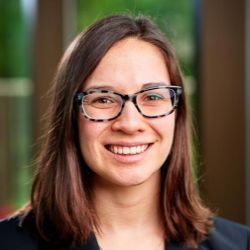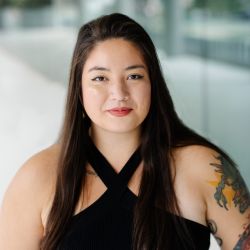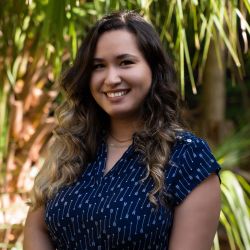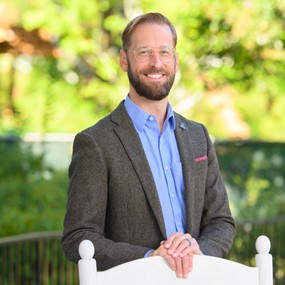Building academic careers in the psychological sciences is challenging. The AUBIE Fellowship is geared at assisting with this process by spotlighting the research success of emerging scholars and providing a job market "boot camp" to help researchers prepare for the academic job market.
AUBIE Fellowship Goals
The AUBIE Fellowship has three aims:
- Recognize the research accomplishments of emerging scholars with a CV line item and accompanying honorarium.
- Build collaborative relationships between AUBIE fellows and Auburn University Department of Psychological Sciences students and faculty.
- Provide an on-campus training opportunity, including an invited talk and mentorship surrounding the academic job market.
Eligibility
Nominees for the AUBIE fellowship can come from any area of psychology.
Competitive nominees are expected to have made an exciting and noteworthy contribution to their area of study (typically in the form of peer-reviewed publications or new lab/analytic techniques).
In alignment with the training element of the fellowship, nominees are expected to be on the upcoming academic job cycle. With this in mind, senior graduate students (i.e., 4-6th years) and post-docs are the intended recipients of the fellowship. Individuals holding, or starting, faculty positions are ineligible for nomination.
Although interested nominees can seek a faculty sponsor from their respective area of study (Faculty Roster), formal nominations must come from a member of the faculty at Auburn University’s Department of Psychological Sciences.
Nominations should include:
- Informal confirmation that the nominee meets inclusion criteria (i.e., they do not hold or intend to start an academic faculty position in Fall 2025) and are available for an in-person visit to Auburn University on April 10, 2026.
- Research description (max 300 words) summarizing nominee’s contribution to psychological science and potential for research career success.
- Nominee’s email contact information.
Nominations should be sent to Dr. Jonathan Kunstman (jwk0030@auburn.edu) by February 20, 2026. Address nominations as AUBIE Fellow Nomination.
Fellowship Program Activities
AUBIE Fellowship program activities include:
- Invited research talk.
- Research meetings and opportunities to build collaborative relationships with Auburn Faculty.
- One-on-one faculty mentoring related to components of academic job interviews (e.g., navigating faculty meetings, negotiations, spotting ‘green’ and ‘red’ flags in academic departments).
- Informal connection with Auburn graduate students and high-achieving undergraduates.
Past Fellows

Dr. Danielle (Dani) Iverson Chapa (2023)
iversonchapada@upmc.edu
Google Scholar Profile
Lab Summary: My research is focused on identifying mechanisms that trigger and maintain maladaptive exercise, a prevalent yet often untreated symptom that negatively impacts eating disorder recovery. In the next three to five years, I hope to extend my work to be at the intersection of pain, exercise, and eating and weight disorders.
“The AUBIE Fellowship helped to increase my confidence in navigating the academic job market at a critical time in my career. The fellowship provides a unique opportunity to participate in a mock interview visit within a very supportive and transparent department.”

Mx. Rebecca (Becky) Harmata (2024)
rebecca.harmata@uga.edu
Google Scholar Profile
Lab Summary: My research on microaggressions aims to further refine measurement tools by investigating the psychological and sociocultural dynamics that shape the experiences of marginalized groups. This work is building toward a unified measurement model that will enable us to ask more complex questions about microaggressions and explore their nuanced impact across various identity groups. In the next 3-5 years, I envision expanding these frameworks to not only improve assessment tools but also guide interventions that address these subtle forms of bias in organizational settings. My other recent work focuses on Latina female experiences at work, as well as the impact of Black female stereotypes on public perception of Black female leaders.
"The AUBIE Fellowship provided me with a unique and high-fidelity experience of a simulated academic interview process. I was able to fully engage with faculty, ask questions, and gain invaluable insights that can only be acquired through the actual process. This opportunity creates a low-stakes, high-reward situation that I highly recommend for receiving constructive feedback as a candidate, while also building a supportive network and community to navigate the academic job market."

Ms. Eliany Perez (2024)
elianyp17@outlook.com
Website
Google Scholar Profile
Lab Summary: My research explores the intersection of cognitive aging and decision-making, with a focus on how individual differences in risk tolerance manifest across spatial navigation and decision-making domains. My master’s thesis examined whether risk tolerance functions as a domain-general trait, finding that individuals tend to maintain consistent exploratory behavior across spatial and decision-making tasks. Building on this, I extended my work to older adults, investigating how aging affects risk tolerance and whether cognitive decline alters previously stable decision-making patterns. Additionally, I have collaborated on projects examining age-related changes in spatial navigation strategies using neuroimaging techniques. My goal is to contribute to a better understanding of how aging impacts spatial and decision-making abilities, ultimately informing interventions that support independence and quality of life in older adults.
"The AUBIE Fellowship was an incredibly supportive and enriching experience. It gave me the opportunity to connect with mentors who provided invaluable guidance, and it helped me navigate the job market with more confidence. Beyond the professional development, the sense of community among fellows and faculty made a lasting impact. I’m grateful for the experience and the encouragement it provided during such a pivotal time in my career."

Dr. Jamilah Silver (2024)
jamilah.silver@stonybrook.edu
Google Scholar Profile
Research Summary: My research examines child and adolescent psychopathology, with a focus on irritability and early childhood depression. I aim to extend the clinical utility of a novel irritability measure I developed, including its application in diverse age groups and cultural contexts. Additionally, my work seeks to uncover the developmental trajectories and mechanisms underlying irritability and its transdiagnostic associations, ultimately informing targeted interventions.
"The AUBIE Fellowship provided an incredible opportunity to participate in a mock job market day before officially entering the academic job market, which was both insightful and confidence-building. The conversations and connections I made during this experience have been invaluable and have extended far beyond the programming day, creating a lasting network of mentorship and collaboration."

Ryszard Koziel (2025)
Ryszard.koziel@slu.edu
Google Scholar Profile
Lab Summary: In the next 3-5 years, I plan to research ways to improve occupational health, safety, and wellbeing, with a particular focus on nonstandard and precarious forms of work and associated experiences and outcomes in the work and non-work lives of workers. My research will center on specific contexts and populations outside of traditional "white-collar” 9-to-5 employment, including gig workers, contract and temporary workers, and workers in the trades. I plan to build my research program and applied toolkit to enable me to blend applied research collaborations with organizational stakeholders—including workers, organized labor, and organizational leaders—with interdisciplinary partnerships that connect organizational and occupational health psychology to real-world applications. I hope to work in an institutional setting where my research and teaching can be meaningfully integrated into the needs of the local community through building or supporting curricular opportunities for applied research, student service-learning, and applied work and internship experiences.
“The AUBIE Fellowship provided me the opportunity to reflect on and articulate my research and scholarly interests, scholarly identity, and near-term trajectory in preparation for the academic job market. It also gave me the opportunity to ask questions and receive feedback in a very candid and supportive setting. This was so helpful as I take steps towards my plans to pursue work in teaching and research in an academic setting. The collaborative culture among students and faculty, supportive departmental environment, and accomplishments of the faculty members I met all provided me with concrete things to look for and strive towards in my own job search and career goals.”
